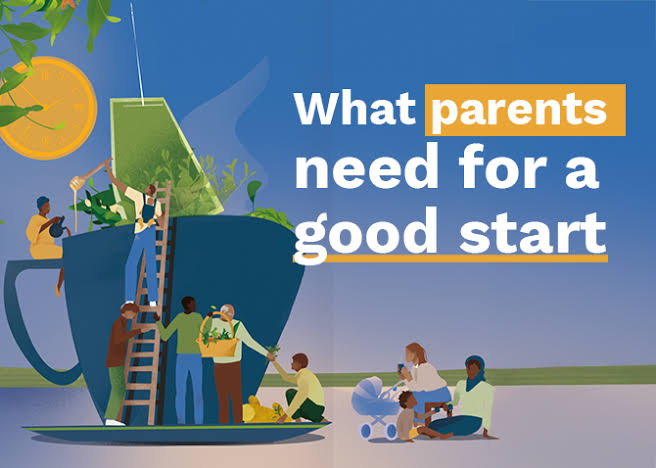
Millions of parents and caregivers across Sub-Saharan Africa are raising young children under the weight of displacement, conflict, and climate-driven crises.
For families uprooted from their homes, ensuring survival while nurturing toddlers and infants can feel almost impossible.
To help address these realities, The Good Start Challenge: Sub-Saharan Africa is inviting applications from organisations with innovative ideas to support caregivers of children aged 0–6 in Ethiopia, Kenya, Senegal, and Uganda.
Supporting Families Impacted by Forced Movement
The challenge is designed for solutions that strengthen the wellbeing of parents and caregivers in communities living with forced displacement.
This includes:
- Refugees
- Internally displaced people (IDPs)
- Host communities
- Families at risk of displacement
Within these groups, the organisers are especially keen on innovations that respond to the needs of single parents, adolescent parents, and caregivers in financially vulnerable situations.
The emphasis reflects the urgent and growing need. Across just four focus countries, there are over 3.5 million refugees and 3.8 million IDPs, according to the Internal Displacement Monitoring Centre and UNHCR.
Many more families remain at risk of displacement due to conflict, persecution, or the increasing frequency of climate-related disasters such as droughts and floods.
When displacement happens, caregivers often lose homes, livelihoods, and social support systems.
Meeting basic needs becomes difficult, and raising children in these circumstances means constant stress and insecurity.
Caregivers must focus on their children’s survival, emotional stability, and development while navigating danger and uncertainty.
The Good Start Challenge recognises this reality and aims to channel resources to ideas that can make an immediate and lasting difference.
What the Challenge Offers
Selected finalists will receive €50,000 to develop and test their proposed solutions.
From there, they will compete for a grand award of €200,000 to scale up their innovation.
Beyond nancial support, the programme promises:
- Global recognition of ideas and achievements
- Media coverage to highlight the work of participating teams
- Exposure at regional events where finalists can present their solutions
- Direct connections with funders, government partners, innovation hubs, and technical experts
For many organisations working in humanitarian and community development settings, this platform provides not only vital funding but also the visibility and networks needed to bring promising ideas to scale.
Who Can Apply
Eligibility depends on the country of focus:
In Senegal:
The challenge is open to non-profit organisations (charities, foundations), private companies/enterprises, and educational or research institutions.
In Ethiopia, Kenya, and Uganda:
Eligible applicants include non-profits, educational or research institutions, and social enterprises.
A social enterprise in this context is defined as an organisation that reinvests all profits back into its mission, without distributing dividends or assets to investors, owners, or shareholders.
Importantly, government entities are not eligible to apply in any country. Applicants must be legally registered organisations to participate.
What Judges Are Looking For
Entries will be evaluated against clear and balanced criteria, with an emphasis on both innovation and practicality.
The weighting is as follows:
- Parent & Caregiver Impact (20%) – how well the solution addresses the needs of the target groups.
- Level of Innovation (20%) – fresh approaches or creative applications of existing ideas.
- Potential for Scale (25%) – the ability to grow beyond the pilot stage and benefit more communities.
- Implementation Capacity (15%) – whether the applicant has the skills and structures to deliver.
- Connection to the User (15%) – strong understanding of and engagement with caregivers themselves.
- Ethics & Safeguarding (5%) – ensuring protection and responsibility in all activities.
Why This Matters
The Good Start Challenge highlights the often-overlooked struggles of caregivers in displacement.
By focusing on those raising the youngest children, it acknowledges that early childhood is a critical window for development and that parents and caregivers need targeted support to provide stability and nurturing care even in the toughest circumstances.
For organisations working in Ethiopia, Kenya, Senegal, or Uganda, this is more than a funding opportunity.
It is a chance to showcase innovative, practical, and humane solutions that can transform the lives of parents and children living through displacement.



